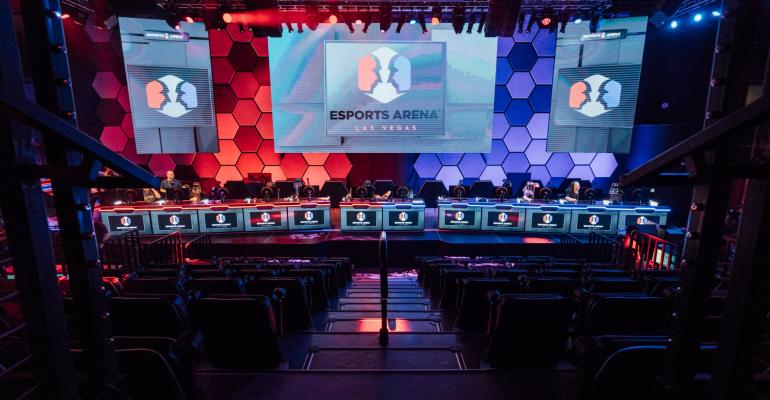The multiplayer video game tournament industry known as esports is having quite a moment. This spring, a new arena devoted to eSports opened in Las Vegas, and in April, the city of Arlington, Tex., announced that it was partnering with sports and entertainment architects Populous to invest $100 million to redevelop the Arlington Convention Center into an esports arena with space for 1,000 spectators.
For meeting planners, the rise in esports represents a couple of challenges, but also an opportunity.
Last September Michael Dominguez, chief sales officer for MGM Resorts International, said during a keynote speech that esports is not just a fad and that meeting planners should be concerned about gamers squeezing them out of venues. He told the audience that MGM shut down a profitable nightclub, LAX, to make way for the Esports Arena Las Vegas at the Luxor. He said, “Gamers are not going away, and they have a lot of money.” Currently, esports arenas are used occasionally for large-scale tournaments with audiences, and also on a day-to-day basis for visitors who pay to play in an immersive environment. However, esports is becoming so popular that the Olympic Committee is investigating including some form of esports at the 2024 Olympics in Paris, and the Tokyo Olympic Committee is working with four esports organizations to feature some esports events prior to the Tokyo Olympics in 2020. The number of tournaments each year is increasing, and that means that meeting planners should expect competition not just for meeting space but also for hotel rooms. In certain cities now, planners will have to take into account not just big football or baseball events, but the esports calendar as well.
It’s not all bad news, though. Esports arenas represent a draw for Millennial attendees, and arenas can be used for meetings and events. The Esports Arena Las Vegas is available for rent for a full conference or an offsite event. The arena has 30,000 square feet of space on multiple levels with a stage area, a 50-foot LED video wall, retractable tiered seating, and a video production studio. There are also six private VIP rooms that can be rented as part of the whole venue or independently for private events. Since esports is dependent on players from all over the world participating in gaming events, the capacity to livestream your event is built in.
The arena benefits from hospitality at the Luxor, with catering by Chef José Andrés and a location in the heart of Las Vegas.





